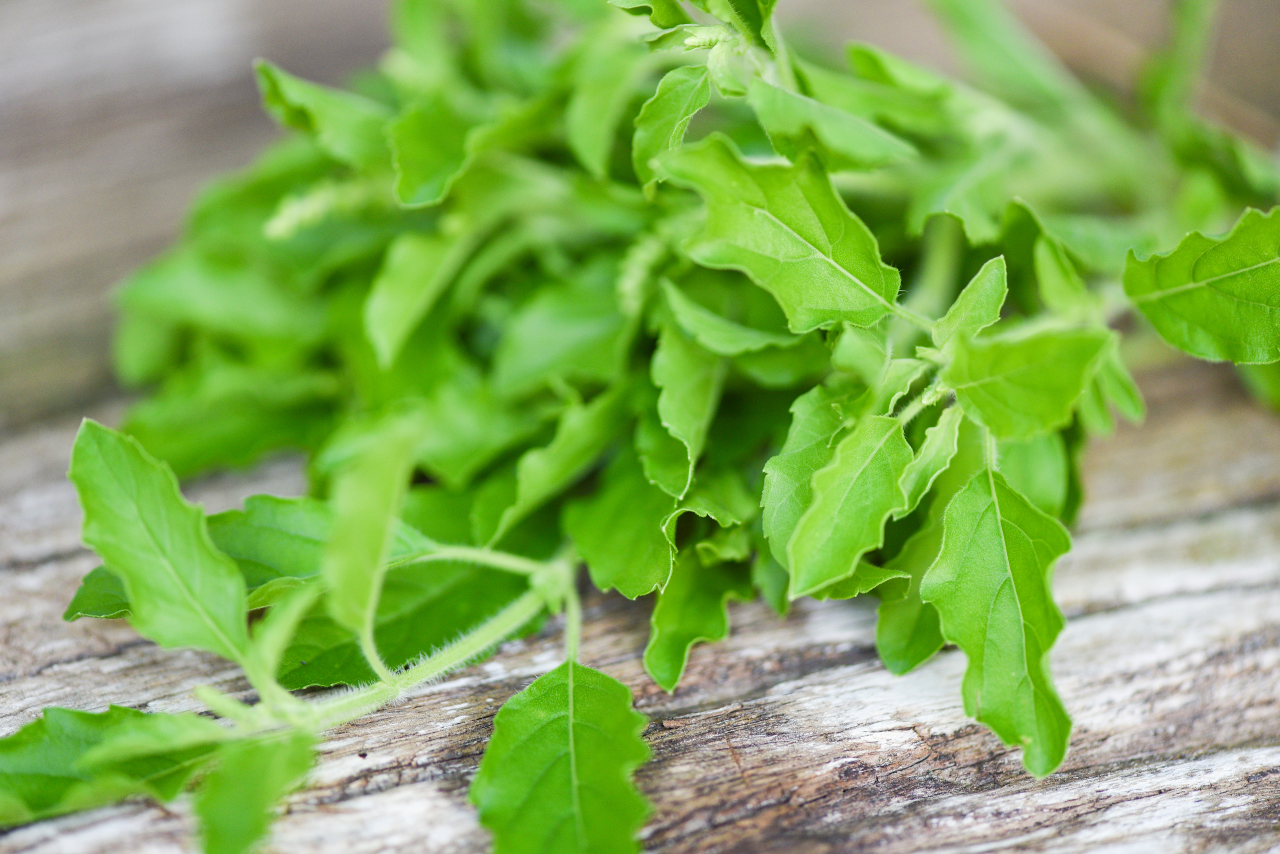Holy basil, with its astringent taste and powerful aroma, is very different from the types of culinary basil used in Italian or Thai cuisine. Also known as Tulsi, and a native plant of the Southeast Asian tropics, holy basil is used in Ayurvedic medical therapies to treat a range of ailments including respiratory conditions, inflammation, and psychological distress.
Scientists are interested in the beneficial health effects of holy basil and are studying the active ingredients that can be extracted from its flowers, stems, leaves, seeds, and roots. Evidence suggests that the plant offers protective benefits against physical, environmental, chemical, metabolic, and emotional stress. The active ingredients in holy basil appear to have adaptogenic effects, helping the body better manage the physiological response to stress. Studies also show it helps reduce inflammation and keeps blood glucose levels in balance.
There are several ways to use holy basil: dried powder, a capsule containing the concentrated herb extract, tea, or tincture. Your doctor may advise using a specific amount and a specific type of application depending on your health concerns or for preventive care. If you have questions, please give us a call to schedule an appointment with your naturopathic clinician or go online to schedule today!
Holy basil is known to interact with other medications, so consult with your physician before using it. Unless under a physician’s care, do not give holy basil to an infant.
Schedule a risk-free 15-minute initial consultation with any of our clinicians.
Image Source:poringdown/freepik.com
References
Cohen, MM. “Tulsi – Ocimum Sanctum: A Herb for All Reasons.” Journal of Ayurveda and Integrative Medicine (2014) 5:4, 251-9. doi: 10.4103/0975-9476.146554
Duke, J.A. Handbook of Medicinal Herbs (2nd ed.). Boca Raton, Florida: CRC Press: 2002.
Prakash, P., and N. Gupta. “Therapeutic Uses of Ocimum Sanctum Linn (Tulsi) with a Note on Eugenol and Its Pharmacological Actions: A Short Review.” Indian Journal of Physiology and Pharmacology 49, no. 2 (2004): 125-131. http://twcleansecommunity.com/wp-content/uploads/2014/03/Tulsi-Research-Prakash-Therapeutic-Uses-A-short-review.pdf
Sumit, B., and A. Geetika. “Therapeutic Benefits of Holy Basil (Tulsi) in General and Oral Medicine: A Review.” International Journal of Research in Ayurveda and Pharmacy 3: 6 (December 2012): 761-764. http://www.researchgate.net/publicliterature.PublicLiterature.search.html?type=keyword&search-keyword=holy%20basil&page=2

